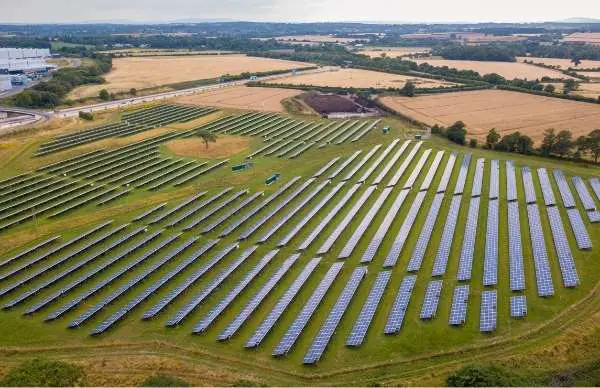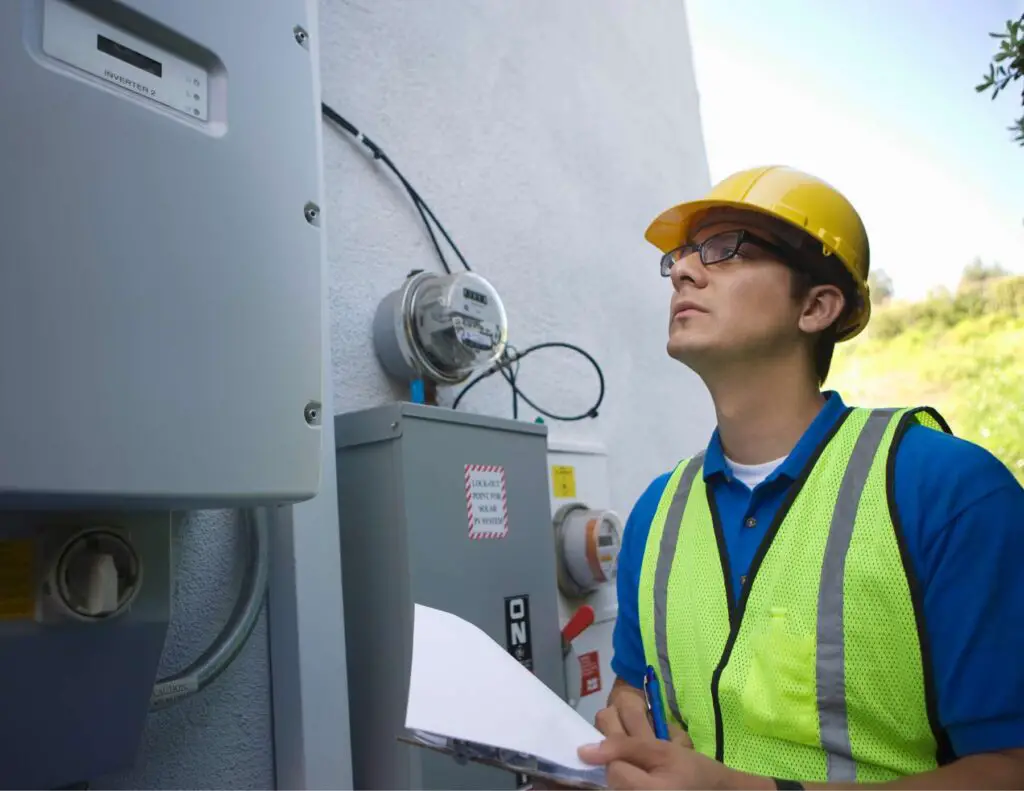
The use of solar panels on a rental property is an investment that many landlords are considering due to its potential benefits to both the environment and their financial bottom line.
Solar energy, a clean and renewable source of power, has been gaining traction among homeowners and property managers alike, as it can provide numerous advantages such as lower utility costs, increased property value, and reduced carbon footprint.
For landlords and property owners, understanding the benefits of installing solar panels on rental properties can lead to a more profitable and efficient living environment for tenants. In addition, tax incentives provided by the government for the adoption of solar energy not only make this investment more attractive financially, but also encourage the use of cleaner and more sustainable technology in the rental housing market.
Key Takeaways
- Solar panels on a rental property can lead to lower utility costs and increased property value
- Government tax incentives make adopting solar energy financially attractive for landlords
- Installing solar panels on a rental property promotes cleaner and more sustainable technology in the rental housing market
Table of Contents
Benefits of Solar Panels on a Rental Property
Tenant Savings
One of the main advantages of installing solar panels on a rental property is the potential for tenant savings. With solar panels, tenants can benefit from clean energy and a reduction in their electricity bills. This can make your rental property more attractive to prospective renters and help retain long-term tenants.
Increasing Property Value
Another benefit of solar panels on a rental property is the increase in property value. Advanced technology such as solar panels can attract more interest, especially from environmentally-conscious renters.
Homeowners and landlords can potentially charge higher rent due to the addition of these renewable energy sources and may see a higher return on investment once the solar panels are paid off.
Lowering Carbon Footprint
The addition of solar panels on a rental property can significantly lower the property’s carbon footprint.
By promoting renewable energy, landlords and tenants alike are contributing to a more sustainable and environmentally-friendly future. This can be a selling point for eco-conscious renters looking for a greener living experience.
Understanding Tax Incentives
When considering installing solar panels on a rental property, it is essential to understand the tax incentives available to property owners.
Tax incentives play a significant role in reducing the financial burden of the investment and promoting the use of renewable energy sources. This section will detail the Federal Solar Tax Credit and Solar Project Tax Breaks.
Federal Solar Tax Credit
The Federal Solar Tax Credit, also known as the Investment Tax Credit (ITC), is a tax credit that allows property owners to claim a percentage of the cost of a solar photovoltaic (PV) system on their federal income taxes.
As of 2023, this credit stands at 26% of the total cost, including both equipment and installation costs. For example, if a rental property owner invests $20,000 in a solar energy system, they could potentially reduce their federal tax bill by $5,200.
The Federal Solar Tax Credit is available for both personal residences and rental properties. However, for rental properties that are also used personally, the credit must be prorated to the time the property was occupied during the tax year.
Solar Project Tax Breaks
In addition to the Federal Solar Tax Credit, there are other tax breaks and incentives available for property owners to encourage them to invest in solar energy projects. Some of the common tax breaks include:
- Property Tax Exemptions: Many states and local governments offer property tax exemptions for the increased value of the property resulting from the installation of solar panels.
- Sales Tax Exemptions: Some states and local governments also waive the sales tax on the purchase of solar panels and related equipment, further reducing the overall cost of the investment.
- Depreciation: Rental property owners can claim depreciation on the solar panels over a certain period. This allows them to recover part of the investment cost over time and reduce their taxable income.
Research local and state-level incentives for installing solar panels on a rental property and consult with a tax professional to maximize savings and understand all the eligibility criteria.

Solar Options for Rental Properties
Renting a property doesn’t mean you can’t benefit from solar energy. There are several options for renters who want to lower their energy costs and contribute to a more sustainable future.
Portable Solar Panels for Renters
Portable solar panels offer a convenient solution for renters who want to utilize solar energy. These panels are easy to install and can be moved from one location to another when you relocate. Some benefits of portable solar panels for renters include:
- Lower Energy Costs: Using portable solar panels can help reduce your electric bills by generating your own power.
- Clean Energy: Utilizing solar energy is an eco-friendly option that helps combat climate change.
- Flexible Installation: Portable panels are not permanently fixed, so renters have more options for installations within their property.
Community Solar
Community solar is another excellent option for renters who cannot install solar panels on their rental properties. Community solar projects, also known as solar gardens or solar farms, are large off-site solar installations shared by multiple subscribers.
- A community solar project generates power and distributes it to the grid, allowing subscribers to receive credits on their electric bills in proportion to their subscription share.
- Subscribing to a community solar project can reduce your energy costs without the need to install or maintain solar panels on a rental property.
- Many community solar marketplaces exist, making it easier to find and join a community solar project in your area.
Installation and Maintenance
Choosing a Solar Installation Company
When considering installing solar panels on a rental property, it is vital to select a reliable and experienced solar installation company.
Look for a company with a proven track record, positive reviews, and a solid reputation for quality and customer service.
Obtaining multiple quotes from different companies allows you to compare services and pricing, ensuring you get a fair deal for your investment. Don’t hesitate to ask for references, license details, and warranty information before making a final decision.
Ongoing Maintenance and Inspection
Proper maintenance of your solar panel system is important to ensure its longevity and efficiency. Regular inspections should be conducted to check the condition of electrical equipment, cables, and connections. Ensuring the system remains electrically safe for both you and your tenants is of utmost importance.
- Weather and Site Conditions: Keep an eye on site conditions and how they may affect your solar panels. Adverse weather, such as storms or hail, can cause damage to your system and reduce its overall performance. Address any issues related to weather and site conditions promptly and adequately.
- Vegetation Management: Overgrown vegetation can cast shadows on your solar panels, hindering their efficiency. Make sure to regularly trim any surrounding vegetation to avoid potential shading issues.
- Cleaning: Dust, dirt, and debris can accumulate on the surface of your solar panels over time, reducing their energy output. Periodic cleaning is necessary to maintain optimal performance. However, use caution when cleaning and avoid harsh chemicals or abrasive materials that may cause damage.
- Condition Monitoring: Be aware of your solar panels’ intended lifespan and monitor any signs of degradation or wear throughout their service life. Keeping tabs on the panels’ condition allows you to plan for eventual replacement or repairs as needed.
- Insurance: Having good insurance coverage for solar panels on a rental property can save you a big financial burden and headache should anything happen to them. Most home-owners policies will have some sort of coverage, but having additional coverage could be very beneficial in certain situations.
Maintenance Costs and Installation Costs
While solar panels require minimal ongoing maintenance, it is essential to account for maintenance costs in your overall budget.
This may include cleaning, vegetation management, and periodic inspections. In addition, remember to factor in any potential installation costs, such as fees for site assessments, permits, and labor. Obtaining a detailed breakdown of expenses from your solar installation company can help you better understand and plan for these costs.
By selecting a reputable solar installation company and implementing a proactive maintenance and inspection plan, you can ensure your solar panel system remains efficient and safe throughout its lifecycle on your rental property.

Safety Precautions and Considerations
Addressing Tenant Safety Concerns
Solar panels are generally considered safe for use in rental properties. However, tenants should be aware of their responsibilities when it comes to maintaining and reporting any issues with the solar panels.
In a tenancy agreement, it should be clearly stated that tenants must inform the landlord or property manager if they suspect the solar panels aren’t working properly, are damaged, or pose a safety risk.
To minimize safety risks, it is vital to keep solar energy systems in good, safe working order. Regular maintenance can prevent issues such as fire safety risks, which can arise from the accumulation of dust and debris on the solar panels. This maintenance should include periodic inspections, as some problems can be expensive to fix if they remain undetected.
Complying with Electrical Safety Standards
To ensure safety, it is crucial to comply with electrical safety standards in place for solar panel installation and maintenance.
Apart from working with a licensed electrician, it is recommended to choose a Clean Energy Council-accredited professional. This accreditation ensures that the solar panel system is installed and maintained properly and safely.
Future Prospects of Solar Energy for Rental Properties
As the world shifts towards renewable energy sources, solar panels have become an increasingly popular option for property owners, including landlords of rental properties. Utilizing solar energy as a clean, reliable alternative to fossil fuels can provide both environmental and economic benefits.
Solar panels can be an energy-efficient solution for rental properties and can offer a consistent and long-term performance. When installed on a rental property, solar panels contribute to reducing the property’s carbon footprint and reliance on non-renewable energy sources. This can further attract eco-conscious tenants who prioritize sustainable living.
The pricing model for solar energy systems has evolved over time, making the technology more accessible for property owners and landlords.
With decreasing costs of solar panels and associated equipment, the initial investment in solar power has become more manageable, resulting in a quicker return on investment.
The solar investment tax credit scheme can provide tax breaks for property owners installing solar panels, further incentivizing property owners to switch to clean energy.
As solar energy gains momentum, more innovative solar technologies are being developed to cater to a variety of property types and requirements.
For example, community solar projects offer a way for renters in apartment complexes to benefit from solar power without installing solar panels directly on their own roofs; renters can purchase a share of or subscribe to these projects, ultimately leading to potential savings on their electricity bills.
Frequently Asked Questions
Can I Charge Tenants for Solar Power?
You can charge tenants for solar power produced by the solar panels on a rental property. This can be done by integrating the solar energy generated into the tenants’ utility bills or through a separate line item charge.
Keep in mind that you should clearly communicate the solar power charges to your tenants before the lease agreement and ensure they understand the billing process.
Does Adding Solar Panels Increase Rental Value?
Adding solar panels to a rental property can increase its desirability to prospective renters, which may lead to higher rental value. Tenants are attracted to the lower utility costs associated with solar energy, as well as the environmental benefits of using renewable energy.
However, the actual increase in rental value may vary depending on the local property market and the extent of savings generated by the solar panels.
How Do I Claim Solar Panel Rebates for A Rental Property?
To claim solar panel rebates for your rental property, you must generally apply for federal and state tax credits, as well as any applicable local incentives. Keep in mind that eligibility requirements and application procedures may differ, so it’s essential to research specific programs in your area.
Remember to retain documentation of your solar panel installation, as it may be required during the application process.
Is It Possible to Depreciate Solar Panels on A Rental Property?
Generally, solar panels installed on a rental property can be depreciated as a capital improvement, allowing you to recover some of the installation cost and reduce your tax liability.
This is typically done by spreading the cost of the solar panels over their useful life, according to the tax laws in your jurisdiction.
How Long Does It Take to Depreciate Solar Panels on Rental Property?
In the United States, solar panels can be depreciated over a period of five years using the Modified Accelerated Cost Recovery System (MACRS). However, be sure to consult with a tax professional to determine the specific depreciation rules applicable to your situation.
What Are the Benefits of Solar Panels for Apartments?
Solar panels can provide numerous benefits for both apartment renters and property owners. For renters, they can lead to lower utility costs, contributing to a more sustainable lifestyle due to reduced carbon emissions.
For property owners, installing solar panels can increase the property’s value, attract environmentally-conscious tenants, and take advantage of various tax credits and incentives. Moreover, the property may become more self-sufficient in terms of energy, making it less reliant on grid electricity and reducing vulnerability to rising energy prices.
